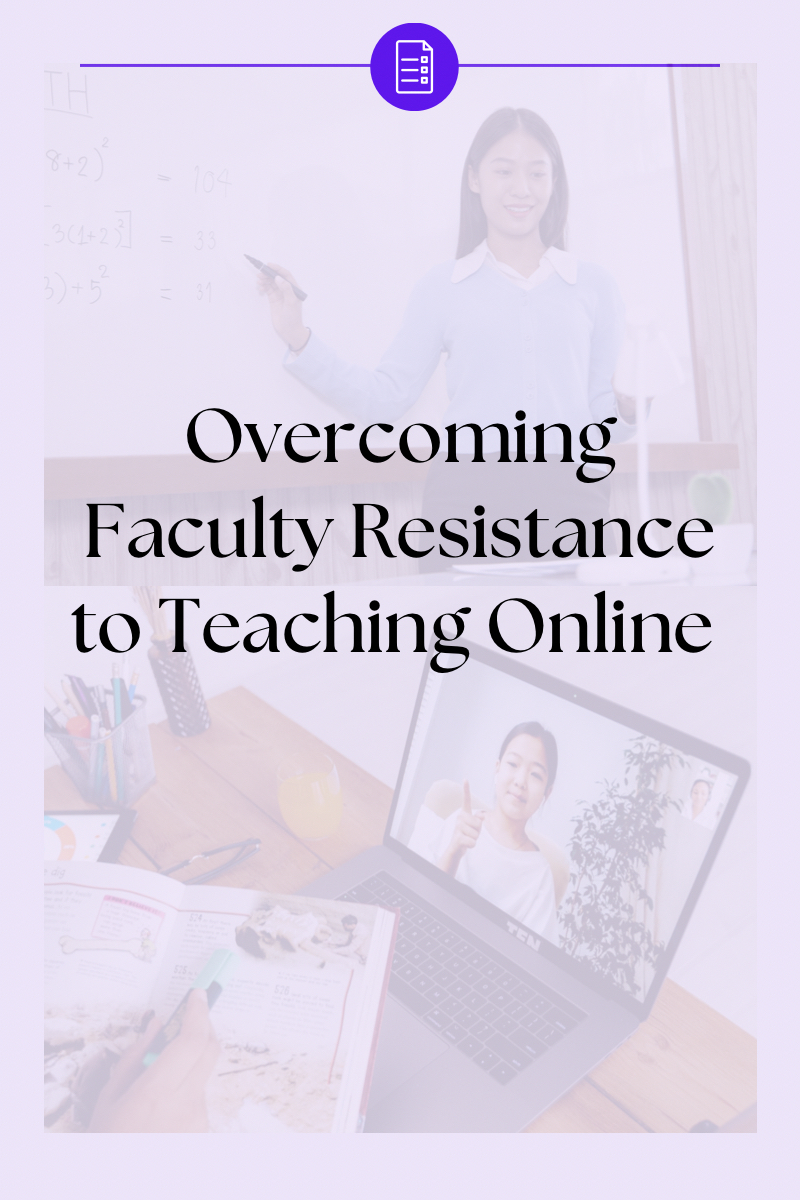Pity the poor academic administrator. They alone have to balance student needs and faculty knowledge about effective teaching. When it comes to expanded online learning, striking that balance has often had more in common with a wrestling match than a conversation about learning. Academic administrators have been both referees and flat on the mat throughout the issue.
Students don’t always know what they want, but they definitely know what they need. Greater flexibility in terms of time and location, more options for combining work, study, and family life. Faculty don’t always know what they want, but they know what they know! Most have spent years refining material, lecture delivery, assessment rubrics, and matters of style.
The conflict between student (or market) demand for more online courses and the resistance of faculty to provide them has become an administrative trope. In addressing faculty resistance to online teaching, there are three issues organizations can universally address before entering into specific conversations with individual faculty members.
Intellectual Property
Who owns the content of the newly-created online course? It has long been understood that the classroom or lecture hall is the domain of the professor or instructor. The live course design and content are linked to a specific voice, personality, and experienced expertise or even status. Once that learning experience is ported directly into an online course template, is the faculty member still at its heart? Many faculty members see that act of porting directly from lecture hall to template as transferring the deed to their intellectual property.
Develop guidelines that respect and compensate for the licensing of faculty intellectual property. That might include a royalty over time or a supplement over the lifetime of an online course. Most faculty are surprised to learn that online courses often have a shorter lifespan than in-person classes as the desire for novel learning experiences online, the variety of styles available, and technological tools develop so rapidly.
It’s also important to differentiate between ownership of content as intellectual property and ownership of the templates and devices the organization has created to standardize online course creation and delivery. These issues have to be decided, reflected in policies and contracts, and universally applied. In some cases, colleges and universities have found it easier to outsource the development of online courses to an outside team on a fee-for-service model. They then create supplemental contracts to hire their own faculty as subject matter experts on a consultant basis. It resolves the issue of ownership and ensures the online course and live equivalent are each unique learning experiences, not an attempt to directly port a live experience online.
Portability
This issue of portability is tied to intellectual property. If an instructor is the heart of an online course, then faculty expect that when they leave the organization, their online course portfolio will go with them. Again, creating policies and agreements that universally apply to all faculty and all online courses will do much to control the risk for faculty in creating online courses.
Fair Terms
While discussions about intellectual property and portability are important, both are linked to a larger theme of fair employment terms. Faculty often believe online learning will make their jobs obsolete. Often, faculty resistance to online learning is a matter of immediate job security and long-term maintenance of an academic culture that goes back to the time of Socrates.
To address these issues of culture, survival, and intellectual commitment, addressing issues of online learning participation and course creation should become part of the collective bargaining process at all educational institutions. This requires a complete understanding of what role online programs play in an organization’s very character, which itself requires ongoing, deep, honest, and inclusive stakeholder conversations.
The short-term forecast doesn’t show our poor academic administrator’s life getting any easier, but the long-term prospects as the discussions continue are hopeful.
Latest posts by Kate Baggott (see all)
- How I Lead: Michael Graham, Vice President of Operations and Technology at NLU - March 22, 2023
- The EdTech News for Friday, March 17, 2023: AI Supports Reading Development, Educators Detect AI-Generated School Work - March 17, 2023
- The EdTech News for Friday, March 10, 2023: Families Coding, Mindsets Changing, and Edusity is Educating - March 10, 2023
